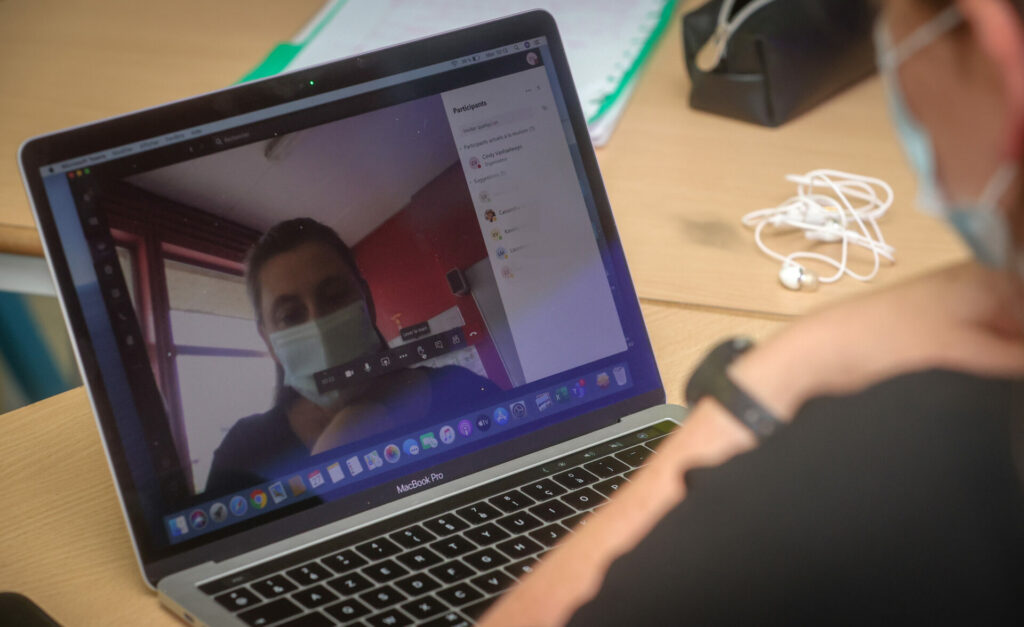For two years, the pandemic forced schools to switch to distance learning. While this resulted in learning delays, especially among vulnerable students, Flanders is looking to structurally embed this type of teaching in secondary education.
The region has created a framework for a hybrid form of education, combining in-school classes and online learning activities, which schools have said can add value to the learning process, said Flemish Education Minister Ben Weyts. By creating this framework, Weyts hopes disputes can be avoided and schools have clarity and (legal) certainty.
"We want schools to be able to combine their contact education with high-quality distance learning if they wish," he explained. "That offers many opportunities to challenge the strong learners more and guide the vulnerable learners better, ensuring more educational quality for all pupils."
"But equally, this way we can better prepare pupils for a job or for higher education, where, after all, you need to have more responsibility and independence."
Cap on time outside of school
The decree regulates the minimum provisions for organising interactive distance learning in secondary education, and sets an upper limit for how much time can be spent outside of schools. In the first two years, this can be done for a maximum of 20% of the time, 30% of the third and fourth grades, and a maximum of 40% of the time for the fifth and sixth grades.
It leaves room for school to shape interactive distance education in line with their pedagogical-didactic vision, taking into account their own context and that of pupils.
However, the opposition Green Party (Groen) criticised the plans, partly because it would be bad for pupils in vulnerable home situations. Green MP Elisabeth Meuleman warned this could mean that subjects can be taught without any contact hours between pupils and teachers.
"We fear that Weyts sees distance learning as a solution to the teacher shortage and high energy bills. But you don't solve existing problems by swapping them with other problems," she said, adding that the pandemic taught us that distance learning has a negative impact on the learning outcomes.
Related News
- Secondary schools to teach climate change courses from next year
- Dual learning gains popularity in Flanders
In his proposal, Weyts stressed that there will be specific guarantees for vulnerable pupils. "For example, the school must first check that all pupils are prepared for distance learning and every pupil has the right to follow distance learning from school."
"This is important, for example, for pupils who cannot have a quiet room at home to attend class," he noted, adding they must always have the right to receive education at school.

